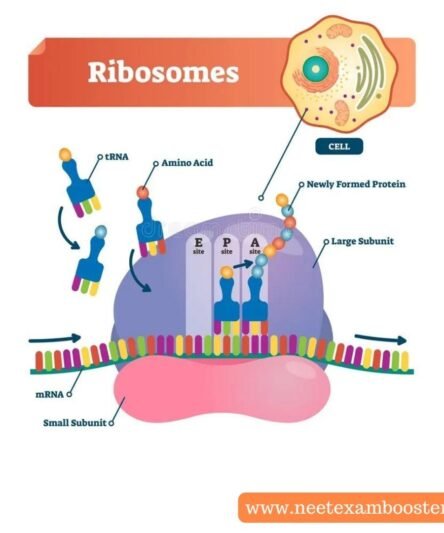States of matter important points :Matter is anything that has a mass and takes up space. The three primary states of matter are solid, liquid, and gas, but matter can also exist in other states, such as the plasma and Bose-Einstein condensates.
Changes in the temperature, pressure, and volume can cause matter to change from one state to another, and the behavior of matter is governed by laws of thermodynamics.
Matter can exhibit properties of waves, and quantum mechanics describes its behavior at atomic and subatomic level. Matter can also be classified into elements, compounds, and mixtures based on their composition. The study of matter and its various properties is called chemistry and is crucial in various fields such as physics, biology, and engineering.
States of matter important points,States of matter important points,States of matter important points,States of matter important points,States of matter important points,States of matter important points,States of matter important points,States of matter important points

NCERT Chemistry Class 11 Chapter 5 – States of matter 25 Important Points
There are 25 important points on states of matter –
- Matter is anything that has a mass and takes up space.
- The three primary states of matter are named as solid, liquid, and gas.
- A solid has definite shape and volume, and its particles are tightly packed together.
- Liquids have definite volume but no definite shape, and their particles are less tightly packed than those of the solids.
- Gases have no definite shape or volume, and their particles are much farther apart than those of the solids or liquids.
6..Plasma is a fourth state of matter that
occurs at very high temperatures, such as those found in stars and in lightning.
7..Bose-Einstein condensates are a fifth state of matter that occurs at very low temperatures, where particles loses their individual identity and behave as a single entity.
- Matter can also exist in the other states, such as supercritical fluids, which have properties of both liquids and gases.
- The behavior of matter is governed by laws of thermodynamics, which describes how the energy is transferred between different states of matter.
- Changes in the temperature, pressure, and volume can cause matter to change from one state to another.
- The melting point is defined as the temperature at which a solid turns into a liquid.
- The boiling point is defined as the temperature at which a liquid turns into a gas.
- Condensation is the process by which gas turns into liquid.
- Sublimation is defined as the process by which a solid turns directly into a gas.
- Deposition is defined as the process by which a gas turns directly into a solid.
- The triple point is the temperature and
pressure point at which all three states of matter can coexist in equilibrium. - The critical point is defined as the temperature and pressure at which a gas cannot be liquefied, no matter how much pressure is applied.
- The viscosity is a measure of its resistance to flow in case of liquids.
- The surface tension of a liquid is a measure of attractive forces between its particles at its surface.
- The specific heat capacity of a substance is the amount of energy that is required to raise the temperature of a unit mass of it by one degree Celsius.
- Matter can also exhibit the properties of waves, such as diffraction and interference.
- Quantum mechanics describes the behavior of the matter at atomic and subatomic level.
- Matter and energy are the two sides of same coin, according to Einstein’s famous equation E=mc^2.
- Matter can also be divided into elements, compounds, and mixtures based on their composition.
- The study of matter and its properties is called chemistry, and it plays a crucial role in the fields of physics, biology, and engineering.
Some Important Questions From Biology Class 11
| Chapter Name | Quiz Link |
| The Living World | Play Now |
| Biological Classification | Play Now |
| Plant Kingdom | Play Now |
| Animal Kingdom | Play Now |
| Morphology of flowering plants | Play Now |
| Anatomy of flowering plants | Play Now |
| Cell: the unit of life | Play Now |
| Biomolecules | Play Now |
| Cell Cycle and cell division | Play Now |
| Transport in Plants | Play Now |
| Structural organisation in Animals | Play Now |
| Mineral nutrition | Play Now |
| Photosynthesis in higher plants | Play Now |
| Respiration in plants | Play Now |
| Plant Growth and development | Play Now |
| Digestion and Absorption | Play Now |
| Breathing and Exchange of Gases | Play Now |
| Body fluids and circulation | Play Now |
| Excretory products and their elimination | Play Now |
| Locomotion and Movement | Play Now |
| Neural Control and Coordination | Play Now |
| Chemical Coordination and Integration | Play Now |
Some Important Questions From Biology Class 12
| Chapter Name | Quiz Link |
| Reproduction in organism | Play Now |
| Sexual reproduction in flowering plant | Play Now |
| Human reproduction | Play Now |
| Reproductive health | Play Now |
| Principles of inheritance and variation | Play Now |
| Molecular basis of inheritance | Play Now |
| Evolution | Play Now |
| Human health and disease | Play Now |
| Strategies for enhancement in food product | Play Now |
| Microbes in human welfare | Play Now |
| Biotechnology principles and processes | Play Now |
| Biotechnology and its application | Play Now |
| Organism and population | Play Now |
| Ecosystem | Play Now |
| Biodiversity and its conservation | Play Now |
| Environment issue | Play Now |



















